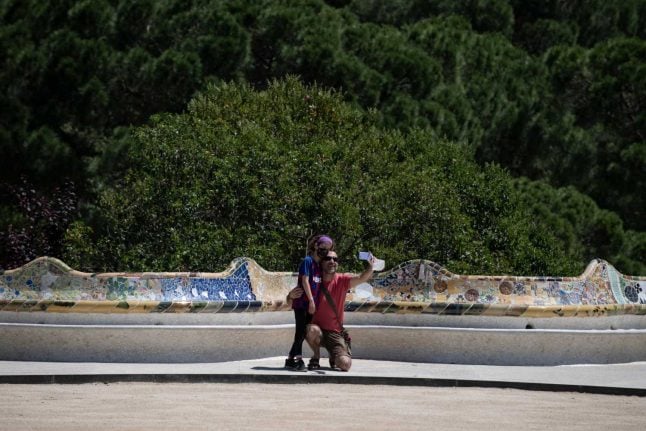The lockdowns caused by the coronavirus pandemic may not have been universally popular but they have had the effect of alleviating, at least temporarily, some of the ills associated with tourism, notably the overcrowding of city centres and a rapid rise in prices and rents.
Park Guell, a UNESCO World Heritage Site and one of the great legacies of modernist architect Antoni Gaudi, is currently for the exclusive use of the residents of the area.
“All my childhood, I played in this park but I never came with my daughter because it was impossible to do anything, there were too many people,” says Laia Torra.
Today, the 39-year-old sports teacher is visiting the park with a friend and her children.
At their disposal lies one of the most coveted places in the park — a long undulating bench decorated with colourful mosaics, overlooking a wonderful panorama of the city, with the Mediterranean on the horizon.
The two women normally never go there as it is always swarmed by visitors looking for the best angles for the seemingly obligatory Barcelona selfie.
“It's wonderful, it's like going back 20 years,” says Torra as the kids gallivant on a scooter and bike.
“We know it's temporary but we have to take advantage of it.” The “Tourist, go home” signs which had flourished in recent years have lost their raison d'etre, at least for a while.
After protests in recent summers against the partying and incivility of some tourists, the former fishermen's quarter of Barceloneta has been transformed into a gigantic open-air gymnasium, where locals come to run, swim and surf during the authorised hours.
“Normally I don't go to these beaches,” admits a beaming Emma Prades, a 43-year-old psychologist.
“Now it's more tempting. And the water is cleaner.”

An almost empty Barceloneta beach. Photo: LLUIS GENE / AFP
'A tourist monoculture'
Marti Cuso, a 30-year-old social worker, has long opposed the tourist invasion of the centre of Barcelona, where he lives, and the subsequent pressure on the local population, many of whom have had to leave the area.
“We have been warning for years that all this could be shattered,” he says.
While other districts are awakening after the confinement thanks to the reopening of small shops, the shutters remain down in the much visited Gothic quarter and on the emblematic Las Ramblas street.
“Today, unfortunately, we are seeing the consequences,” says Cuso.
“A tourist monoculture has created a desert.”



 Please whitelist us to continue reading.
Please whitelist us to continue reading.
Member comments